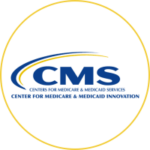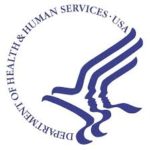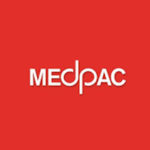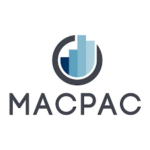The following is the latest health policy news from the federal government for March 7-13. Some of the language used below is taken directly from government documents.
 Congress
Congress
Funding the Federal Government
Unless Congress passes spending legislation, funding for the federal government will expire at 12:01 a.m. this Saturday, March 15.
This week, the House passed a continuing resolution that would fund the federal government through the end of the 2025 federal fiscal year. The bill extends telehealth flexibilities, the Acute Hospital Care at Home program, and other health extenders through September 30, 2025. The bill also delays cuts to Medicaid DSH through September 30, 2025 and extends those cuts through 2028 (they are currently scheduled through 2027). The bill does not include an increase of Medicare payments to physicians.
In the Senate, where Republicans hold 53 seats to Democrats’ 47, eight Democratic senators will have to support the bill if every Republican senator votes yes. Senator John Fetterman (D-PA) has indicated that he intends to vote for the bill but it is not known whether other Democratic senators will do so. Senate Democrats have offered an alternative 30-day continuing resolution, though it is unclear whether that bill will be put to a vote.
Reconciliation
The House, Senate, and White House continue reconciliation bill talks. House and Senate leaders have not yet agreed on the outlines of a joint budget resolution for what spending and cuts would be included in the party-line bill. Speaker Mike Johnson (R-LA) continues to push for bill passage by Memorial Day but senators say their bill could take as long as August to pass. Medicaid and Medicare continue to be targets for massive spending cuts while Speaker Johnson has promised that an increase in Medicare payments to doctors will be included in a final reconciliation bill.
 Center for Medicare and Medicaid Innovation – Models to be Terminated
Center for Medicare and Medicaid Innovation – Models to be Terminated
- CMS’s Center for Medicare and Medicaid Innovation (CMMI) has announced changes in its array of models that seek to test new approaches to the delivery and payment of various types of care to different patient populations. The agency will end, by December 31, 2025, its
- Maryland Total Cost of Care model
- Primary Care First model
- ESRD Treatment Choices model
- Making Care Primary model
- CMMI also is considering reducing the size of Integrated Care for Kids model awards or making other changes in this model.
- In addition, CMMI will no longer pursue two previously announced but not yet implemented models:
- the Medicare $2 Drug List model
- the Accelerating Clinical Evidence model
- CMS estimates that it will save $750 million by terminating these models early.
- Participants should expect follow-up communication from their models with timelines, technical assistance, and other information regarding the wind-down and close-out. Learn more about CMMI’s actions, why they have been initiated, the agency’s intentions moving forward, and additional support that will be provided to participants and patients from this CMS fact sheet.
Centers for Medicare & Medicaid Services
- CMS has released a proposed rule that seeks to address what it calls “improper enrollments” that affect Affordable Care Act health insurance marketplaces. The proposed rule’s major provisions call for:
- Shortening the annual open enrollment period for individual market coverage offered through Affordable Care Act marketplaces by ending it on December 15.
- Ending the availability of the monthly special enrollment period (SEP) for individuals with household incomes below 150 percent of the federal poverty level.
- Strengthening verification by requiring all marketplaces to reinstitute pre-enrollment verifications of eligibility for SEPs; revising standards for income eligibility verifications for premium tax credits and cost-sharing reductions; and requiring further verifications of income when there is no tax data available for verification.
- Proposing that when an enrollee does not verify ongoing eligibility for a fully subsidized plan, marketplaces must continue to re-enroll that individual into the same plan and reduce the amount of advance payment of the premium tax credit by $5.
- Proposing a policy that would add sex-trait modification to the list of items and services that may not be covered as essential health benefits beginning in plan year 2026.
- Reverting to a previous definition of “lawfully present” that excludes Deferred Action for Childhood Arrivals (DACA) recipients for purposes of enrolling in marketplace coverage.
Learn more about the proposed rule and the rationale for these and other changes from this CMS news release and this preview version of the proposed regulation, which is scheduled for official publication on March 19. The deadline for stakeholders to submit comments is April 11.
- The deadline for hospitals to apply for additional residency positions is March 31. Learn more about how to apply from CMS’s direct medical education web page.
- CMS has posted a bulletin presenting updates on billing for administering hepatitis B vaccinations. Find that bulletin here.
- CMS has posted a special edition of its “MLN Connects” newsletter that brings together various resources in support of the White House’s February 25 executive order emphasizing the administration’s support of efforts to compel hospitals to be transparent about the prices of their services. Find that newsletter here.
- CMS has canceled contracts with vendors to develop a new provider enrollment system and will work with new software engineers and the Department of Government Efficiency (DOGE) to complete the work. Learn more from this X post.
- CMS has revised its guidance to state nursing home surveyors with changes designed to improve facility oversight and enhance the quality of care. Find the updated guidance here. The changes take effect on April 28.
CMS has approved a series of state plan amendments for Medicaid and CHIP programs.
- To South Dakota, for a two-year extension of the exception from establishing a Medicaid Recovery Audit Contractor (RAC) program.
- To Wisconsin, adding intensive outpatient treatment services.
- To Nevada, authorizing the state to enter into value-based supplemental drug rebate agreements.
- To Louisiana, permitting provisions governing the Pharmacy Benefits Management Program to update the copay tier payment schedule to align with HHS/CMS recommended guidelines.
- To California, updating the eligibility requirements for the Health Insurance Premium Payment program.
- To Arkansas, allowing a Recovery Audit Contractor (RAC) Exemption for a period of two years beginning February 1, 2025.
- To Wisconsin, adding other licensed practitioner coverage for ground emergency medical providers who provide treatment at the scene.
- To Utah, changing coverage of extended services for pregnant women to increase the scope of services provided by physician assistants.
- To California, establishing guidelines for the medical allocation for unallocated settlements, judgments, and/or awards to avoid unnecessary costs associated with litigation over the medical allocation of an unallocated settlement, judgment, and/or award.
- To Wyoming, updating state plan assurances in accordance with federally mandated quality reporting requirements for the Child Core Set and the behavioral health quality measures on the Adult Core Set and attesting to Wyoming Medicaid’s adherence with federal reporting requirements.
- To Idaho, adopting the changes to the eligibility rules for the Former Foster Care Children eligibility group, as enacted by the Substance Use-Disorder Prevention that Promotes Opioid Recovery and Treatment for Patients and Communities (SUPPORT) Act.
- To Oklahoma, covering community health services to eligible members as provided by community health workers within a public health clinic.
- To Nevada, increasing the amount for the personal needs allowance to eligible recipients in Intermediate Care Facilities for Individuals with Intellectual Disabilities. This amendment will also allow for annual cost-of-living increases.
- To California, updating state plan assurances in accordance with federally mandated quality reporting requirements for the Child Core Set and the behavioral health quality measures on the Adult Core Set.
- To Iowa, adding an attestation that Iowa will comply with mandatory annual reporting of the Health Home Core Set measures.
- To Minnesota, updating state plan assurances in accordance with federally mandated quality reporting requirements for the Child Core Set and the behavioral health quality measures on the Adult Core Set.
- To Washington state, increasing the income standard for the optional eligibility group serving individuals whose incomes are above 133 percent of the federal poverty level and are under age 65.
- To Louisiana, amending the provisions governing opioid treatment programs to expand the types of eligible practitioners who can treat individuals and prescribe medications in medication-assisted treatment.
- To Minnesota, making changes to provider qualifications for child and family psychoeducation, early intensive developmental and behavioral intervention, mental health services, and adult rehabilitative mental health services.
 Department of Health and Human Services
Department of Health and Human Services
- HHS’s Office for Civil Rights has announced that it is investigating four unnamed medical schools and hospitals under Title VI of the Civil Rights Act of 1964 in response to allegations and information it has received that they may operate medical education, training, or scholarship programs for current or prospective workforce members that discriminate on the basis of race, color, national origin, or sex in violation of Executive Order 14173, which directs federal agencies to enforce long-standing civil rights laws and “to combat illegal private sector… DEI preferences, mandates, policies, programs, and activities.” Learn more from this HHS news release.
- Medicare and Medicaid provider payments are at risk of diversion through electronic funds transfer fraud schemes, HHS’s Office of the Inspector General (OIG) concludes in a new report. Among its findings, the OIG learned that two-thirds of surveyed entities that process payments for Medicare and Medicaid reported that they were aware of being targeted by electronic funds transfer fraud schemes. Learn more from the OIG’s report.
- HHS’s OIG has published its annual Medicaid fraud control units report for FY 2024. Find it here.
- HHS is reorganizing its Office of the General Counsel, consolidating from ten to four regional offices; it will maintain regional offices in Philadelphia, Atlanta, Kansas City, and Denver. HHS also is creating the new position of Chief Counsel for Food, Research, and Drugs. Learn more about the changes from this HHS news release.
- HHS has posted eight videos from its Physician-Focused Payment Model Technical Advisory Committee’s two-day meeting on reducing barriers to participation in population-based total cost of care (TCOC) models and supporting primary and specialty care transformation. Separate videos address reducing barriers to public comments and share panel discussion and listening sessions. Find the videos here.
HHS Newsletters and Reports
- CMS – MLN Connects – March 6
- AHRQ News Now – March 11
- HRSA eNews – March 6
- HRSA – Office for the Advancement of Telehealth – Announcements – March 11
 Cybersecurity & Infrastructure Security Agency (CISA)
Cybersecurity & Infrastructure Security Agency (CISA)
In cooperation with the FBI and the Multi-State Information Sharing and Analysis Center, CISA has issued an advisory presenting tactics, techniques, procedures, indicators of compromise, and detection methods associated with known Medusa ransomware activity. Medusa is a ransomware-as-a-service variant used to conduct ransomware attacks; as of December 2024, more than 300 victims from critical infrastructure sectors, including health care, have been affected. Medusa actors use common techniques like phishing campaigns and exploiting unpatched software vulnerabilities. Find the CISA alert here and an accompanying advisory that offers links to additional information about Medusa and resources for identifying and responding to it; the latter is primarily for IT professionals.
Center for Disease Control and Prevention (CDC)
The CDC has issued a health alert notifying clinicians, public health officials, and potential travelers about a measles outbreak in Texas and New Mexico. As of March 7, 2025, according to the CDC, Texas and New Mexico have reported 208 confirmed cases associated with this outbreak: 198 in Texas and 10 in New Mexico, with one death in each state. Warning that more cases are expected as this outbreak continues to expand rapidly, the CDC alert offers guidance on diagnosis, treatment and management, and vaccination recommendations and directs health care professionals to additional resources. Learn more from the CDC’s health alert.
 Medicare Payment Advisory Commission (MedPAC)
Medicare Payment Advisory Commission (MedPAC)
- MedPAC’s commissioners held their latest public meetings on Thursday, March 6 and Friday, March 7. The subjects on the meetings’ agenda were:
- reforming Medicare physician fee schedule updates and improving the accuracy of relative payment rates
- reducing beneficiary cost-sharing for Medicare-covered outpatient services at critical access hospitals
- Medicare insurance agents
- Medigap
- mandated report: payment for ground ambulance services
- examining home health care use among Medicare Advantage enrollees
- institutional special needs plans
- reducing beneficiary cost-sharing for Medicare-covered outpatient services at critical access hospitals
Go here for summaries of the issues and key points and links to the presentations delivered by MedPAC staff and a transcript of the two-day session.
- MedPAC has submitted to Congress its required annual “Report to the Congress: Medicare Payment Policy.” The report consists of 13 chapters:
- a chapter that provides a broad context for the report, including Medicare’s overall financial situation and factors contributing to Medicare spending growth
- a chapter that describes the Commission’s analytic framework for assessing fee-for-service (FFS) Medicare payment adequacy
- seven chapters that describe the Commission’s recommendations on FFS Medicare payment-rate updates and related issues to ensure that beneficiaries have access to high-quality care and the program achieves good value for taxpayers and beneficiaries
- a chapter that describes FFS Medicare beneficiaries’ access to care in ambulatory surgical centers
- a chapter that describes the Medicare Advantage program, including recent trends in enrollment, plan offerings, and Medicare’s payments to plans, and discusses related issues such as coding intensity, favorable selection, and market concentration
- a chapter about Medicare’s pharmacy benefit, Part D, that updates trends in enrollment and plan offerings and includes information about the effects of significant changes happening in 2025, as implementation of the Inflation Reduction Act of 2022 continues
- a chapter that describes the Commission’s recommendation to improve beneficiaries’ access to inpatient psychiatric care by eliminating both the 190-day lifetime limit on covered days in freestanding inpatient psychiatric facilities (IPFs) and the reduction of the number of covered inpatient psychiatric days available to some beneficiaries during their initial benefit period
Find MedPAC’s March 2025 report to Congress here.
 Medicaid and CHIP Payment and Access Commission (MACPAC)
Medicaid and CHIP Payment and Access Commission (MACPAC)
MACPAC has submitted to Congress its required “Report to Congress on Medicaid and CHIP.” The report consists of three chapters:
- recommendations to improve the usability and transparency of the managed care external quality review process
- improvements on timely access to home- and community-based services (HCBS)
- ways to streamline Medicaid Section 1915 authorities for home-and community-based services and reduce the administrative burden on states and the federal government.
Find MACPAC’s March 2025 report to Congress here.
Government Accountability Office (GAO)
The GAO has issued two reports about improper federal payments: “Program Integrity: Agencies and Congress Can Take Actions to Better Manage Improper Payments and Fraud Risks” and “Improper Payments: Information on Agencies’ Fiscal Year 2024 Estimates.” Both pay particular attention to improper payments in the Medicare and Medicaid programs, including identifying them as the biggest sources of improper payments.
Congressional Research Service
The Congressional Research Services has published an overview of Medicaid/CHIP eligibility rules for non-citizens. Find it here.

CMS – End-Stage Renal Disease Open Door Forum – March 18
CMS will hold an open-door forum for providers of end-stage renal disease services on Tuesday, March 18 at 2:00 (eastern). Go here to register to participate.
CMS – Medicare Cost Report E-Filing System Webinar — March 19
CMS will hold a Medicare cost report e-filing system webinar on Wednesday, March 19 at 1:00 (eastern) during which participants can learn about new and upcoming functionality for Medicare Part A cost reports and hospice cap determinations in the Medicare Cost Report e-filing system. The webinar will include a live Q&A session and an opportunity to provide feedback. Learn more from this CMS notice (and scroll down to Medicare Cost Report E-Filing System Webinar – March 19) and go here to register to participate.
MACPAC – Commissioners Meeting – April 10-11
MACPAC’s commissioners will hold their next public meeting virtually on Thursday, April 10 and Friday, April 11. An agenda and registration information are not yet available but when they are they will be posted here.
MedPAC – Commissioners Meeting – April 10-11
MedPAC’s commissioners will hold their next public meeting virtually on Thursday, April 10 and Friday, April 11. An agenda and registration information are not yet available but when they are they will be posted here.

 CMS has approved a series of state plan amendments for Medicaid and CHIP programs.
CMS has approved a series of state plan amendments for Medicaid and CHIP programs.
